The Rás. A race to strike fear in the strongest heart; huge fields, big hills and mad uncontrollable stages with fearless Irishmen continually firing off the front in death or glory bids.
The winners include: ’10’ and ’25’ record holder, Polish strong man, Marcin Bialoblocki; AG2R’s Lithuanian beast Gediminas Bagdonas, multi-World Time Trial Champion Tony Martin, and … Jamie McGahan of Scotland. Not only did he win it in 1981 he finished second in 1982 and third in 1983.
He also won the 1983 The Tour of Scotland ‘Health Race’ – beating a certain Teun Van Vliet in the process. Van Vliet would go on to a successful pro career with Dries-Verandalux and Panasonic.
High times VeloVeritas ‘had a word’ with Mr. McGahan…
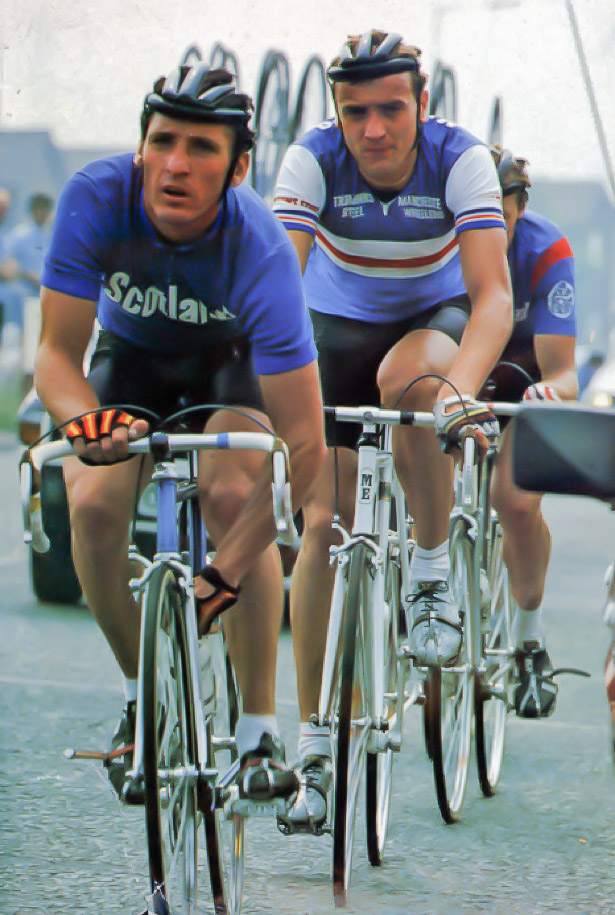
In the beginning, Jamie?
“There was an old CTC guy across the road; my dad got me an old Flying Scot and I started going out on runs with the old fella – one day I met Pat McCabe who was a Glasgow Wheelers stalwart so I joined them.
“I had spell with Jimmy Dorward at the [East Dunbartonshire-based] Scotia Sports CC – Jimmy was a pioneer of interval training, and I also had a spell with Eddie Cairney’s club, the Greenock RC.”
Who were your idols back then?
“Eddy Merckx, Roger De Vlaeminck, Freddy Maertens and Bernard Hinault – he was so determined.”
Remind us of your Scottish palmarès, Jamie.
“I suppose the main ones would be winning the Scottish Road Race Championships in 1977 (I beat Robert Millar that day), then again in ’82 and ’83.
“I won the Davie Bell Memorial, don’t remember much about that one, the Inverness – Elgin, and two silver medals in the British Team Time Trial Championships.”
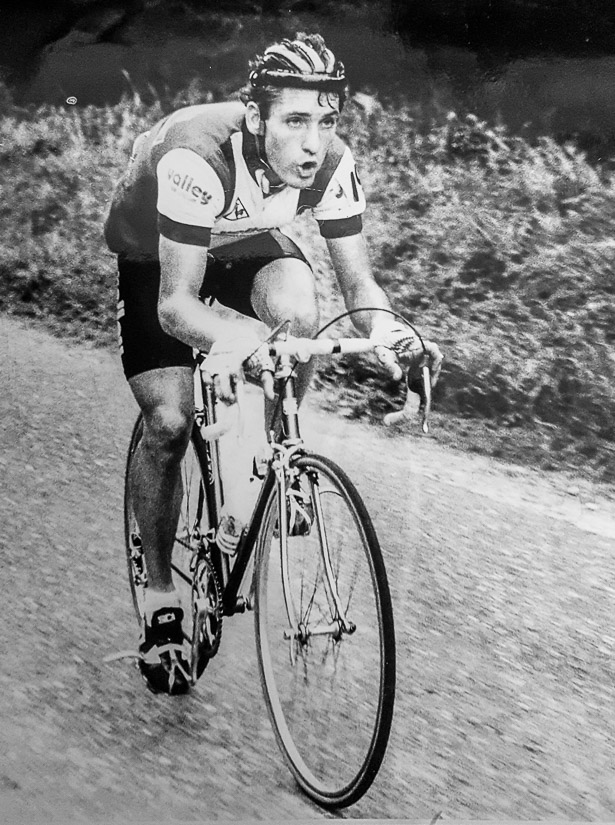
How was your relationship with Robert Millar?
“How was anyone’s relationship with Robert?
“He had immense courage, a big heart, and he could go deep into the depths of his resources… but as a person he was a bit of a handful.
“There’s the famous, ‘Mark Bell anecdote’ where the Liverpudlian has arrived in the ACBB flat in Paris and is waiting for something to happen.
“Millar arrives, meets Bell in the kitchen, doesn’t say a word, takes his food to his room and slams the door behind him.
“That was it for Bell, he went home!
“But Robert did what he had to do – and that personality of his served him well, he doesn’t need people.
“But I do!”
You spent time in France – why Nice, though?
“That was a lonely experience, I was hoping to get a place with ACBB in Paris on the strength of my fifth place in the British Road Race Championships in 1979.
“Sandy Gilchrist and Des Fretwell sat on me that day and I had two punctures. I’d taken a tanking in the Tour of Britain but had obviously recovered well from it.
“I didn’t get into ACBB in the end, but the guy who organised the club, Mickey Wiegand, put me in touch with the Sprinter Club Nice; Bernard Vallet, Nico Roche and Charly Bérard’s old club.
“It never lasted, although I went back the following year with Colin Fraser – and I did win a race down there.
“One of my adversaries was Vallet, who went on to be King of the Mountains in the Tour de France.
“That second year Colin and I moved up to Ghent. It was hard up there and took some getting used-to.
“My conception of the break forming going clear over the top of a hill went right out of the window – it was all one’s and two’s going across and groups forming and reforming.”
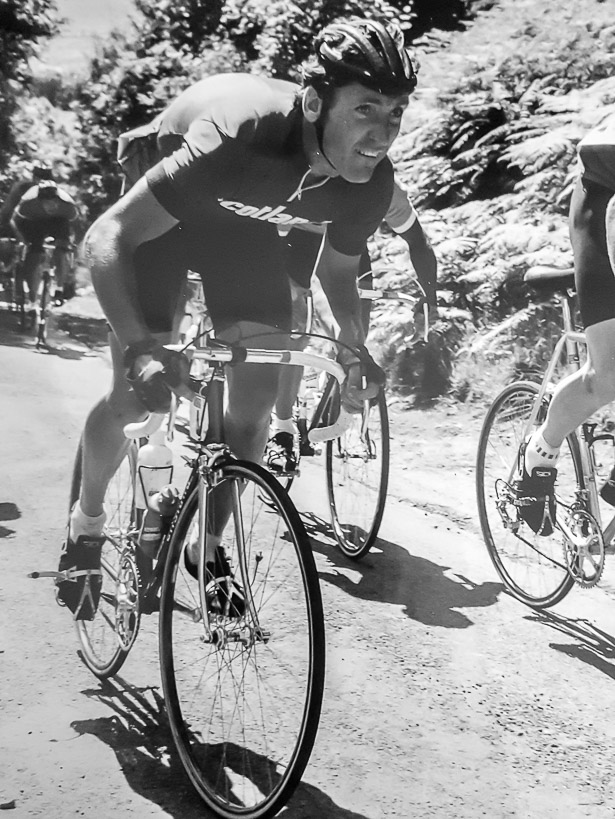
Scottish teams had more international invites, back then.
“From when I was 19 up to 22 and won the Rás there wasn’t a lot happened in my career, partly because I wasn’t getting guidance.
“If you take the Tour of Britain as an example; I wasn’t used to riding in a bunch of that quality. You had to be near the front but it was hard to stay there, I mean, in Scotland you were practically invited to the front!
“But those years, I was learning, toughening up, getting stronger.
“And yes, we got the invites, but they were sporadic – the Girvan, the Tour of Britain, the Sealink International, and the Tours of Bohemia and Slovakia – all hard races.
“I began to think about the psychology of it… I mean, some of the worst days I ever had on the bike – coming home in a bodybag – were in training; mad runs to Oban and back.
“You had to get your head round the fact that these races weren’t putting you in the same mess as some of our club runs so what was the problem?”
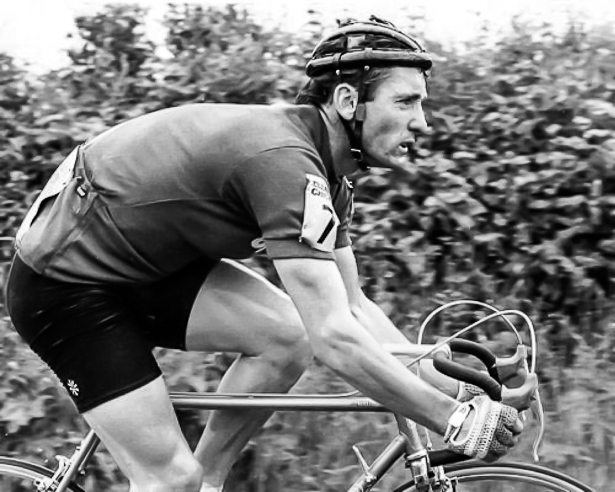
That Rás Tailteann win in ’81, you had a strong Scotland team around you…
“I did but it was basically a team of individuals; Norman Lindsay (Musselburgh Roads CC) won the first two stages in bunch sprints and ended up Point winner and third overall, Willie Gibb (Johnstone Wheelers) was there and Colin Fraser too.
“We were all developing at our own rates and I didn’t really expect riders to work for me, but we did win the International Team Prize.
“Those Irish boys knew how to race though; the pattern was that the second-string guys would go on the attack and the top guys would end up chasing all day.
“The second last stage was a five mile time trial, I went wearing yellow with a margin of 55 seconds. I remember thinking ‘I’ll be keeping this jersey, even if they have to put me in an ambulance at the finish’.
“I knew how to suffer by then but I went off like a rocket and after a mile was in oxygen debt – I totally messed up my pacing, but held on by 12 seconds.
“The last stage was 50-odd miles into Phoenix Park in Dublin. I was worried someone might try to cut me up, but I made it safely.
“I suppose was a little lucky in ’81 because the Northern and Southern Ireland Federations weren’t unified and there was still ‘needle’ there.
“In ’83 when I was third nobody would work with me and Phil Cassidy, who won it, called-in all his favours from the County teams.
“In ’82 when I was second I couldn’t make a move without riders being all over me.
“That team was Willie Gibb, Davie Gibson and Bobby Melrose – but it was Commonwealth Games year and everyone was looking for a stage win because that was a passport to The Games.
“In the Rás though, you have to say, there are so many courageous riders, guys you perhaps don’t rate but who were attacking hard from the start.”
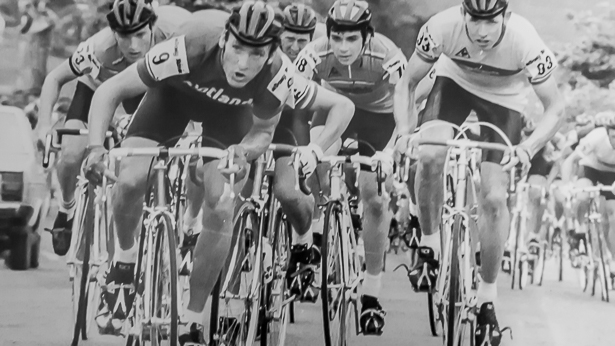
That Health Race win, ’83, beating the likes of Van Vliet?
“When I look back, my apprenticeship wasn’t the best – chucked into Slovakia and Bohemia against those East Europeans who were just so strong.
“But I learned about training, diet, and how to approach and conduct a race.
“I went into the ’83 Health Race with the belief that I could do well. I was floating in that race – but that’s the thing about bike racing, you’re disadvantaged if you’re strong because riders will get together and bring you back – it’s not like in marathon running where the strong guys just go away from everyone.
“It always amazes me when a rider stands up and says; ‘I’m going to win so and so’ because in cycling there are so many variables. I made the move which won me that race on the stage to Cumbernauld, over the Crow Road.
“But really the seeds of that win were sown the year before when I was in the break of six with the Czechs, Milan Jurco (Worlds Team Time Trial medallist) and Michal Klasa (Olympic Team Time Trial medallist) going into Perth.
“I went through, did my spells and even attacked them at the end – I finished sixth of six but psychologically that was a huge boost.
“The East European guys were all strong boys, I actually raced against the legendary Pole, Ryszard Szurkowski (World Amateur Road and Team Time Trial Champion, Olympic medallist and four times Peace Race winner) when I was with the Nice club in 1980.”
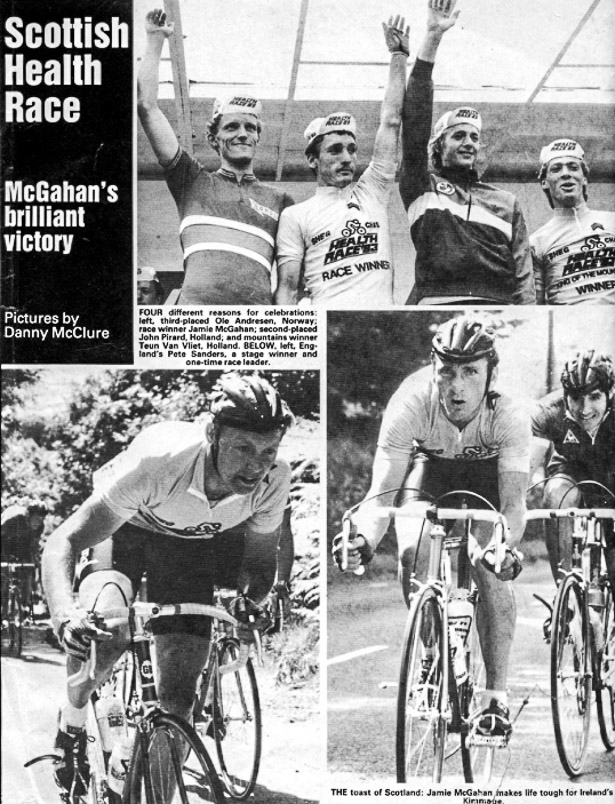
You were selected for the Worlds in 1983 but didn’t make the trip?
“Yes, that’s right.
“After the Health Race I was actually selected for GB to ride the Worlds in Switzerland.
“I got a letter from Jim Hendry (the GB Manager) saying he was going to be checking riders’ form in the next race (which was a Pro-Am) – bear in mind the team had already been selected…
“Anyway, I smelt a rat right-off.
“So during the race, I rode hard all day, put in a few blistering attacks and in the end did a huge turn to bring back Phil Bayton, who would have won the race, particularly as the pros were blocking.
“I closed that gap for Malcolm Elliott, as we were meant to be team mates the following weekend at the Amateur Worlds.
“Anyway, I crossed the line 12th and Elliott won.
“I got a telegram a couple of days later telling me I had been omitted from the team due to poor form and Joey McLoughlin took my place!
“In a previous GB team gathering, Hendry had told me that I ‘probably joined the Glasgow Wheelers for the same reason as him’ – to get selection for races off the back of Arthur Campbell.”
[Arthur Campbell MBE was a member of the Glasgow Wheelers and an obsessive campaigner for cycle sport in the UK, but was at that time also President of the Scottish Cyclists’ Union and an ex-President of the British Cycling Federation, and a prominent UCI Commissaire chairing the UCI Technical Committee. Editor.]
“I didn’t know what he was talking about, but with a little bit of investigation I discovered that there was some truth in that fact; riders from various parts of the country did join the Glasgow Wheelers for that reason. Hendry, for example, was from Perth.
“In addition, I don’t think he actually liked Arthur – “guilty by association” I guess!
“The pros who were blocking that day were all from different teams – every penny of prize money was a prisoner to them.
“Sid Barras and Keith Lambert were arguing like kids at the finish when Elliott won. They didn’t like the idea that one of Maggie Thatcher’s DHSS professionals (Department of Health and Social Security. ed.) had got the better of them…
“There was quite a bit of enjoyment in that for me.”
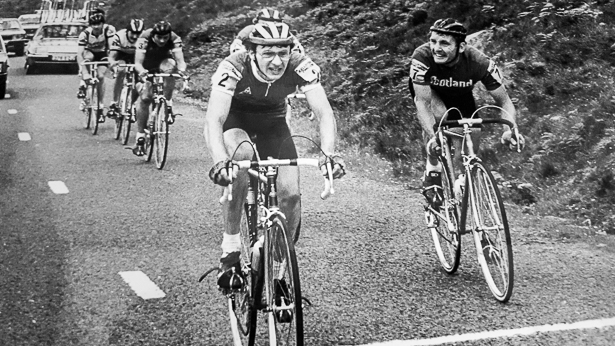
There were many English guys with palmarès nowhere as good as yours who turned pro, back then.
“In ’83 I wasn’t frightened of anyone and I loved winning, it was instant gratification, which is something you rarely get in a job.
“But the thing is that in Scotland you weren’t in a position to make connections.
“If you were in France or even down south there was so much more opportunity to connect with pro teams and people who could get you a ride.
“If you take my friend, David Miller – that’s the one from the 80’s, he turned pro with Raleigh then rode for Ever Ready and Falcon. I was at least at his level but he was down there where the teams were.”
Why stop when you did?
“I rode the Rás in ’84 and finished fifth, but I was losing interest in training, I’d met my wife, had no trade and was constantly thinking; ‘what can I do to make money ?’
“My focus was gone.
“I won a stage in the Rás in ’86 and another decent race in Ireland whose name escapes me.
“But when I rode the Rás in ’87 I hated every minute of it, my heart wasn’t in it.”
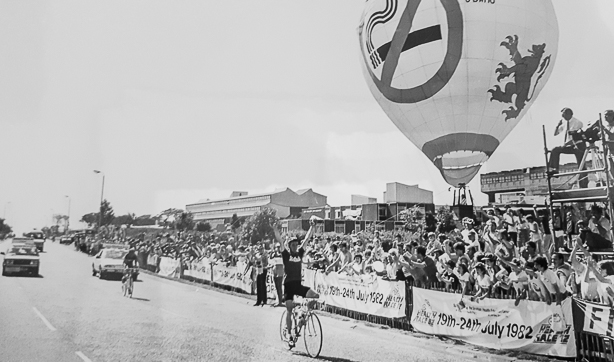
If you had to do it all again?
“I ask myself sometimes, ‘maybe I wasn’t good enough?’
“But then I look at the location I chose in France, it wasn’t just that you weren’t in the Heartland, it was the monumental distances we used to have to drive to races.
“Still, even if I had turned gone to Brittany or Northern France and turned pro I may have ended up with some unscrupulous manager who’d race me to death, like happened to Graham Jones, they burned him out.
“I’m not sure it was a good time to be a pro – much better now with just 60 races each season…”
With our thanks to Jamie McGahan, National Tour winner and ‘proper’ racing cyclist.



